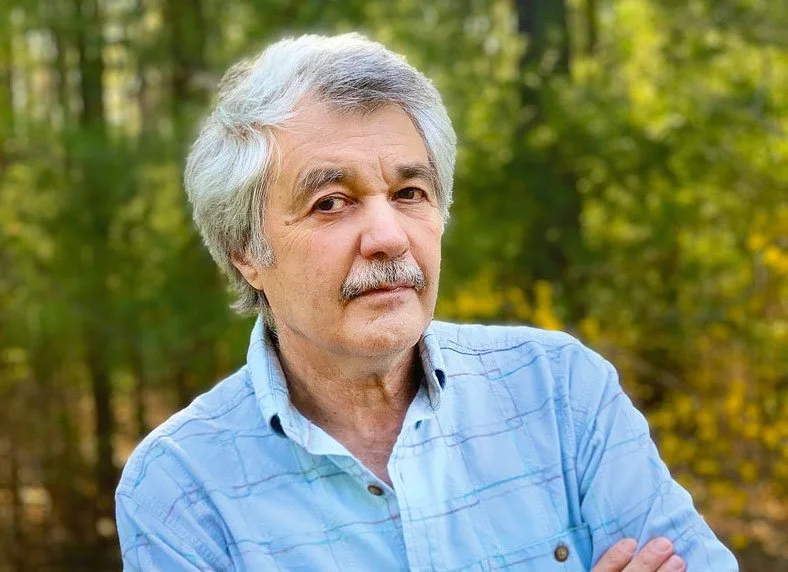I doubt that Volodymyr Dibrova thought he was being prophetic when he wrote the two short novels Peltse and Pentameron nearly 40 years ago.
But he was—let’s call him an accidental prophet—and I couldn’t help thinking of those stories again as I’ve watched bombs falling on innocent civilians and that bullshit Russian security council meeting in February when the Butcher of the Kremlin sought feedback from his advisors (not that it really mattered) about recognizing two proxy states in eastern Ukraine and conducting a “special military operation” to save them from the Nazis.
Peltse and Pentameron are sides of the same coin. One shows us the apparatchik mindset that turns government higher-ups into paranoid sheep; the other shows ordinary people trying to get on with their lives despite the stupid decisions made by those sheep.
Comrade Peltse is clearly related to all those ministers sweating it out during the Butcher’s meeting.
Remeber the stammering spymaster Sergei Naryshkin at that meeting? Do you remember how the Butcher bullied him to stick to the script?
Peltse has got to be his distant cousin. Peltse is a Class-A fool who has accomplished little of substance and is dogged by a terrifying dream of “an immense monument to himself … falling off the highest mountain and smashing into tiny particles.” Spoiler alert: That dreams turns into reality for him—and let’s hope it happens to Comrade Putin. Soon.
Pentameron’s five characters (hence the title) all work in the same office and yearn and worry about different things—love, safety, fulfillment, art—and it makes for particularly painful reading now. Their real-life counterparts in the cities and towns across Ukraine don’t have time to yearn or dream. Not when bombs are raining down on their heads.
Dibrova is a brilliant stylist who has been part of Harvard University for many years and hails from Donetsk, a city which everyone and their mother unfortunately recognizes now. I first encountered his Peltse and Pentameron in the 1990s and wrote about them in the pages of the Los Angeles Times. It’s not an exaggeration to call them both tightly organized masterpieces. This blog and website are all about the nuts and bolts of writing, and any practicing writer will learn loads of good practical shit from this man. Dibrova’s definitely not the Prince of fiction; you won’t find anything purple in his prose (sorry, I can’t resist a Dad joke now and then).
One of the best lines in my Dibrova collection in fact, in my humble opinion, comes from the introduction by one of the sagest critics and writers I know, Askold Melnyczuk. Of the craftsmanship and economy Dibrova deploys in both, he says: “A novel does not live by pages alone; it is defined by the distance a writer can travel across a sentence.”
Friggen great. Truer words never spoken. There’s a big lesson in expressive economy in these two novels. Any writer would benefit from studying them..
And, it ties my stomach in knots to say it, since February 24, there is a very tragic timeliness here, too.
More to come, my friends.
Support Ukraine. If you haven’t already, give to Razom, International Red Cross, The Kyiv Independent, and so many others. Give. Give. Give.
#freeukraine






